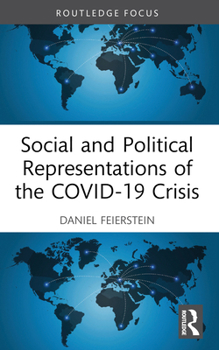Social and Political Representations of the COVID-19 Crisis
Select Format
Select Condition 
Book Overview
Weaving together political, sociological, psychological, and epidemiological analyses, Social and Political Representations of the COVID-19 Crisis provides revealing insights into the transformations wrought by the pandemic and the social divisions it has exposed. Accounting for the realities of the pandemic across the globe, with a strong focus on experiences in the Global South, this book challenges readers to question their beliefs about the societies they live in and how these societies should respond to collective catastrophes. Originally published in Spanish, this English edition is thoroughly revised and updated.
Social and Political Representations of the COVID-19 Crisis analyzes the varied strategies attempted in different parts of the world to deal with the pandemic, including elimination, mitigation, flattening the curve, and herd immunity, and the ramifications of these approaches. It argues that the different strategies are guided by social representations that can be analyzed on epistemological, emotional, and ethical-moral levels. Drawing upon a wide range of thinkers, the book also investigates the key role of psychological defense mechanisms, including different ways of denying the seriousness of the pandemic and different paranoid responses to pain and frustration, such as scapegoating and conspiracy theories.
This timely book analyzes the transformations in the social fabric brought about by the pandemic and the questions it poses for the future of our societies. It will therefore be of great interest to students and researchers in the humanities, social sciences, and public health, as well as the general reader.





